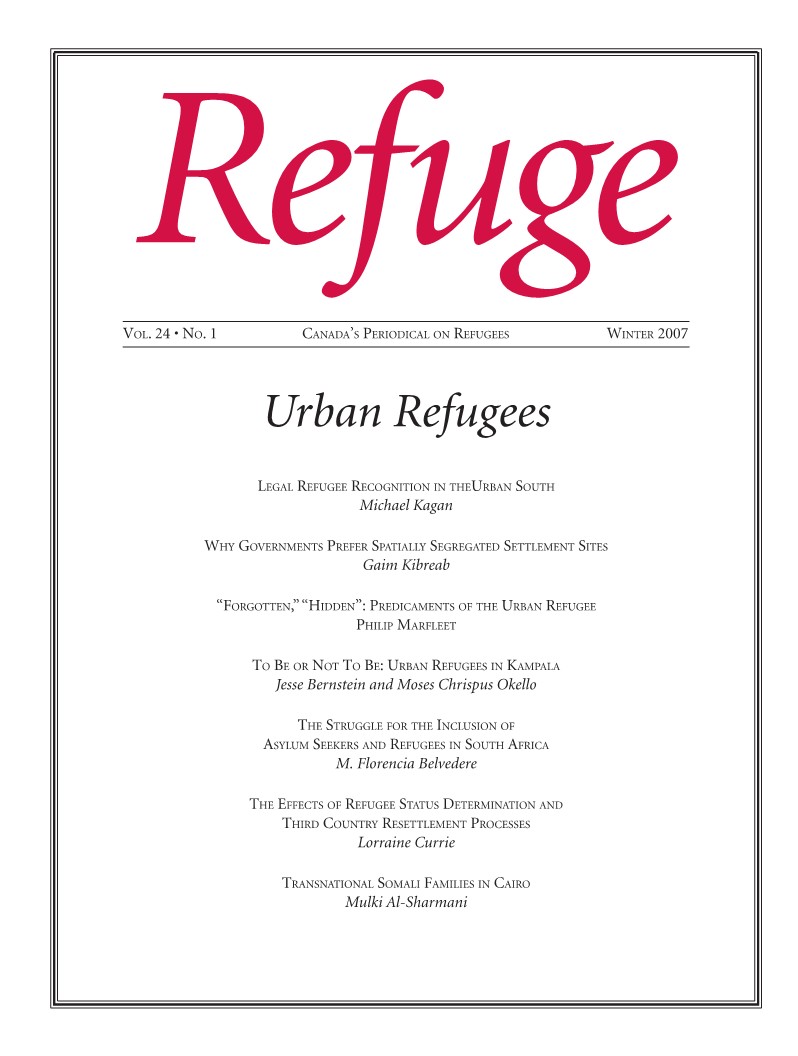To Be or Not To Be: Urban Refugees in Kampala
DOI:
https://doi.org/10.25071/1920-7336.21367Keywords:
Kampala, Uganda, urban refugees, refugee policy, refugee status determination, self-sufficiency, protection, social assistanceAbstract
In Uganda, refugee policy and programming is focused almost exclusively on providing protection and assistance to refugees residing in rural settlements. While international law allows refugees the right to freedom of movement and choice of residence, Ugandan legislation restricts refugees’ residency to rural settlements, subjecting those who wish to live outside of settlements and in urban centres to severe restrictions. This study sheds light on the reasons refugees choose to reside in Kampala as opposed to rural settlements and the challenges they endure while attempting to sustain and support themselves. Research findings indicate that at all stages of exile, refugees in Uganda are put under pressure, either implicitly or explicitly, to relocate to settlements. The lack of progressive thinking and hence over-reliance on settlements as the mainstay of refugee protection and assistance has hampered reforms of refugee policy and hindered the broader involvement of municipal authorities in responding to protection and assistance needs of refugees in urban areas. Research findings suggest that many refugees have talents, skills, and abilities which would enable self-sufficiency in Kampala and other urban areas. However, these capabilities are currently undermined by a refugee regime which only promotes self-reliance in rural settlements. In an effort to enhance refugees’ overall human security and to support their own efforts to become independent and self-reliant, this paper asserts that refugee policy in Uganda should be reformed to support refugees’ decisions to choose their own places of residence, instead of restricting them to rural settlements.Metrics
Downloads
Published
How to Cite
Issue
Section
License
Copyright (c) 2007 Jesse Bernstein, Moses Chrispus Okello

This work is licensed under a Creative Commons Attribution-NonCommercial 4.0 International License.
Refuge authors retain the copyright over their work, and license it to the general public under the Creative Commons Attribution-Non Commercial License International (CC BY-NC 4.0). This license allows for non-commercial use, reproduction and adaption of the material in any medium or format, with proper attribution. For general information on Creative Commons licences, visit the Creative Commons site. For the CC BY-NC 4.0 license, review the human readable summary.







